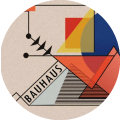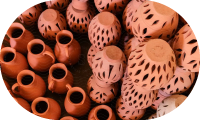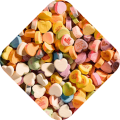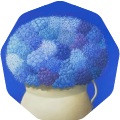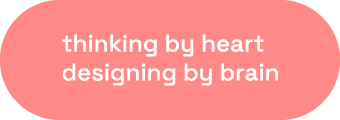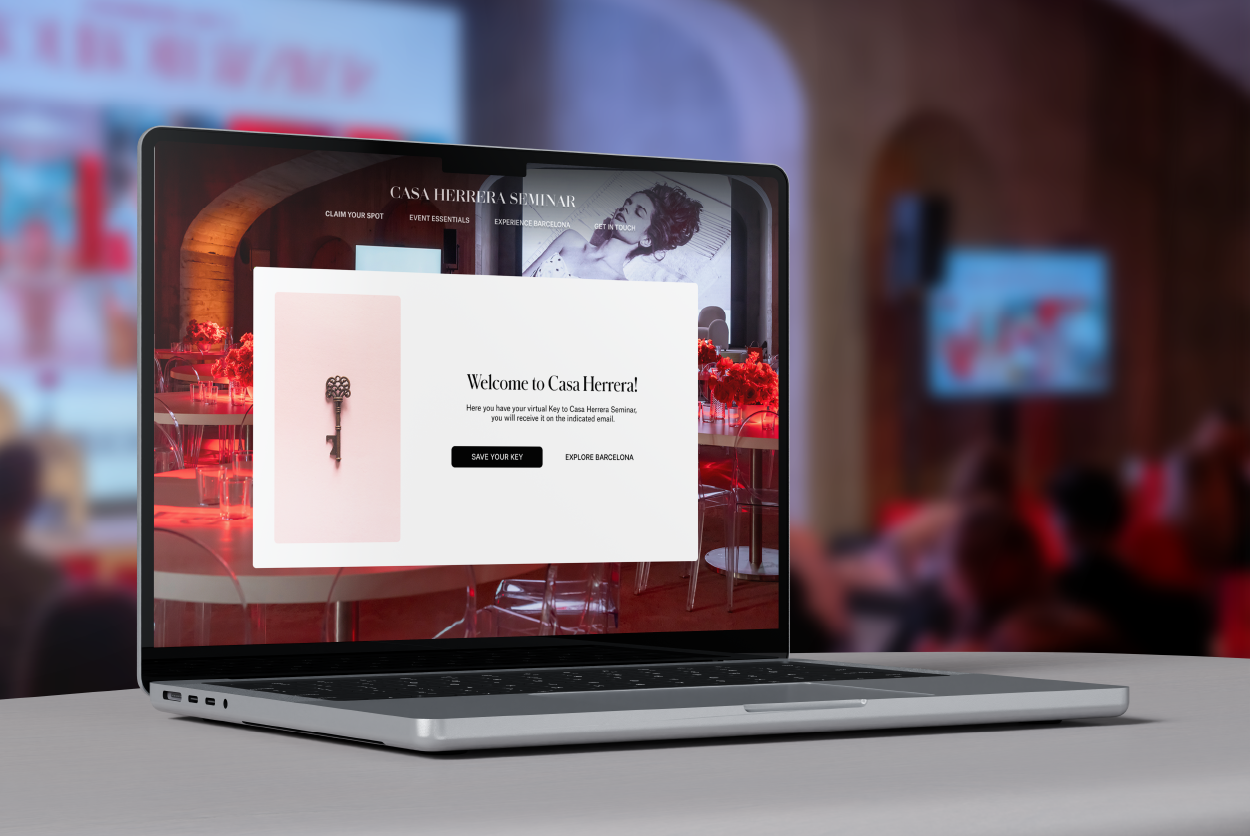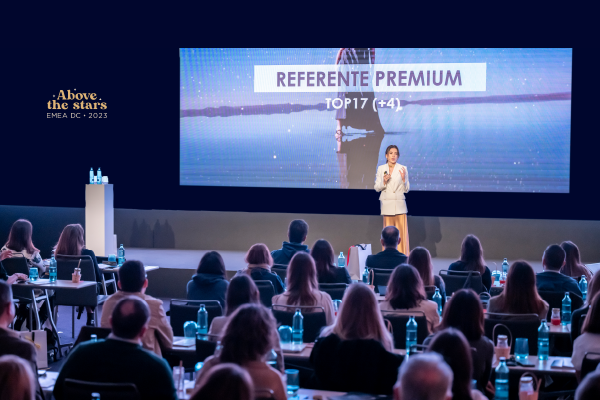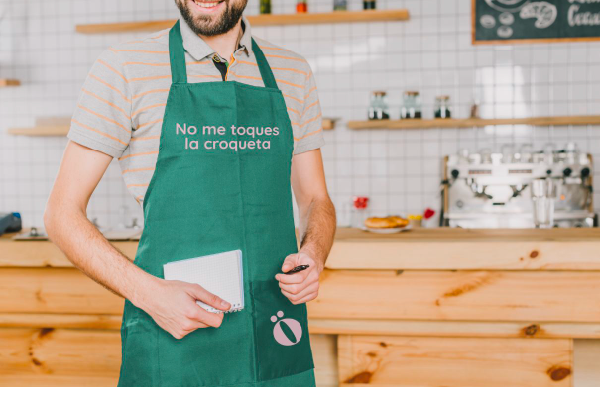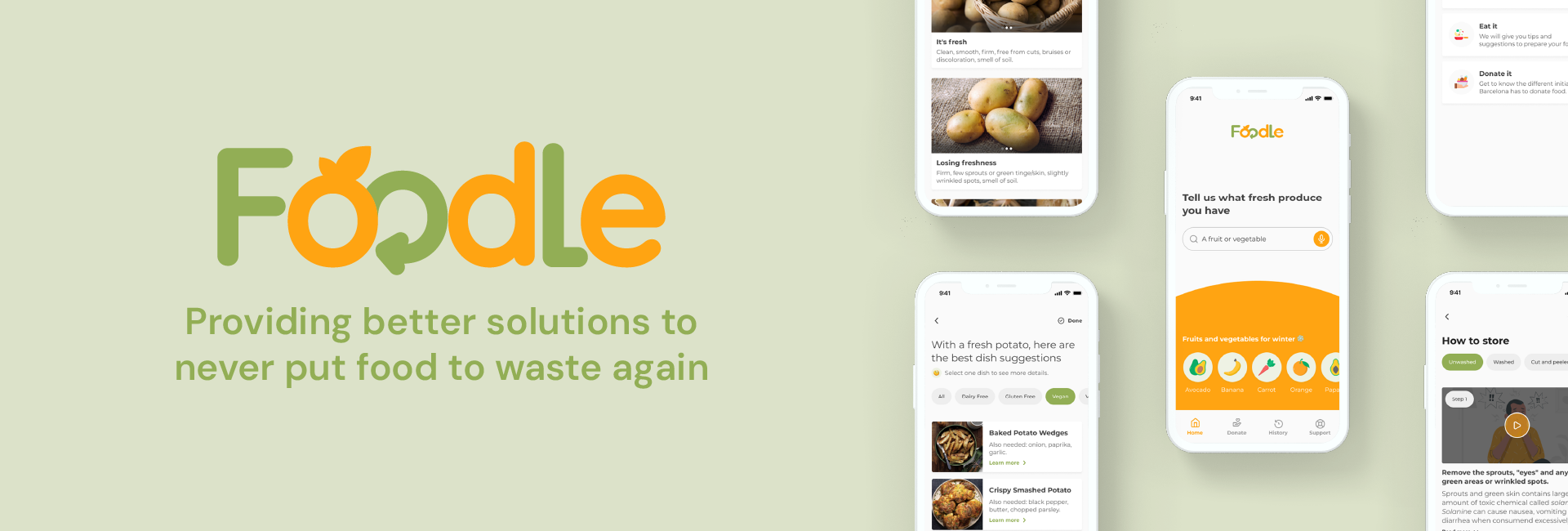
FOODLE
an app that provides smart solutions to reduce food waste
Overview
Foodle is your smart kitchen sidekick—designed for young professionals who want to manage their groceries better, without overthinking it. With a playful decision-tree interface, Foodle transforms daily food dilemmas into quick, satisfying decisions.
Less waste, less guilt, more ease.
Outcomes & Impact
40% faster decisions when managing food at home, according to usability tests.
+85% engagement rate thanks to a gamified experience that turned a chore into something fun.
10/10 final score in the UX/UI Master’s at ESDi Higher School of Design.
THE CHALLENGE
How might we make young Barcelona residents more aware of responsible food consumption?
In fast-paced cities like Barcelona, young professionals often buy impulsively and lack the time—or energy—to plan meals and manage their groceries effectively. The result? Good food ends up in the bin. Tackling food waste requires more than just awareness. We needed a tool that fits into busy lives and turns small, everyday choices into a habit of sustainability.
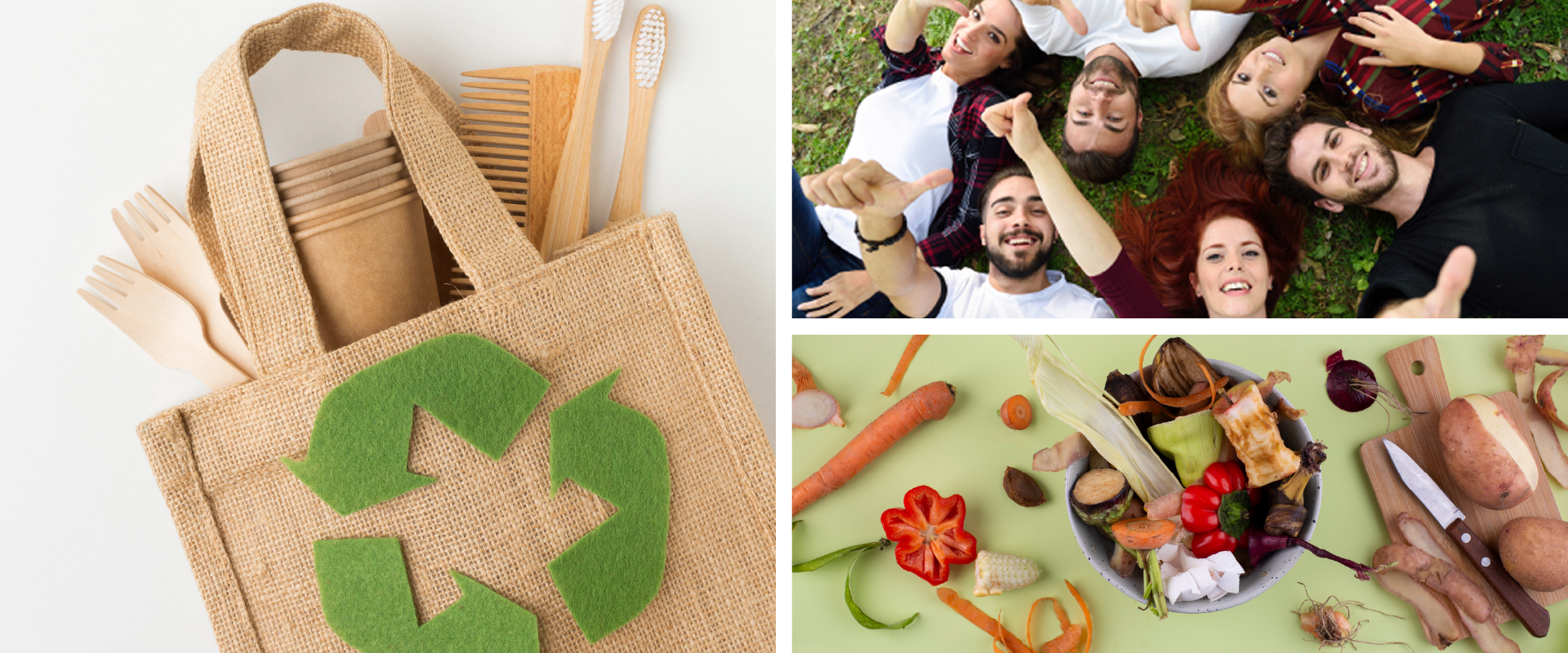
THE SOLUTION
We designed Foodle as a simple yet engaging mobile app that reframes food management as an intuitive decision-making flow. Our goal: reduce waste, one frictionless tap at a time.
Three key design decisions brought this to life:
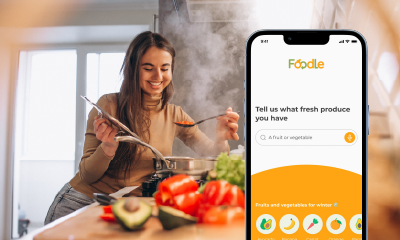
Mobile-first experience
Tailored for users who think on their feet—and often cook on the fly—Foodle’s interface was optimized for fast, one-handed navigation and clarity.
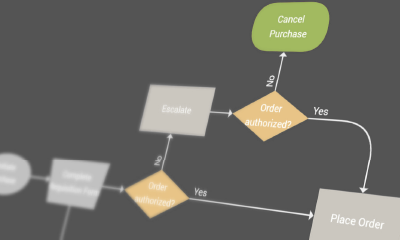
Interactive decision tree
At the heart of the app is a playful flow that guides users based on their food’s current state (fresh, near expiration, or spoiled), offering clear, actionable suggestions.
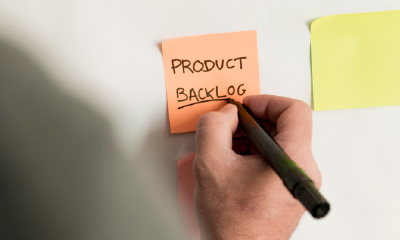
MVP with purpose
We focused on delivering only what users truly needed—validated through multiple testing rounds. No clutter, no noise. Just the features that make a real impact.
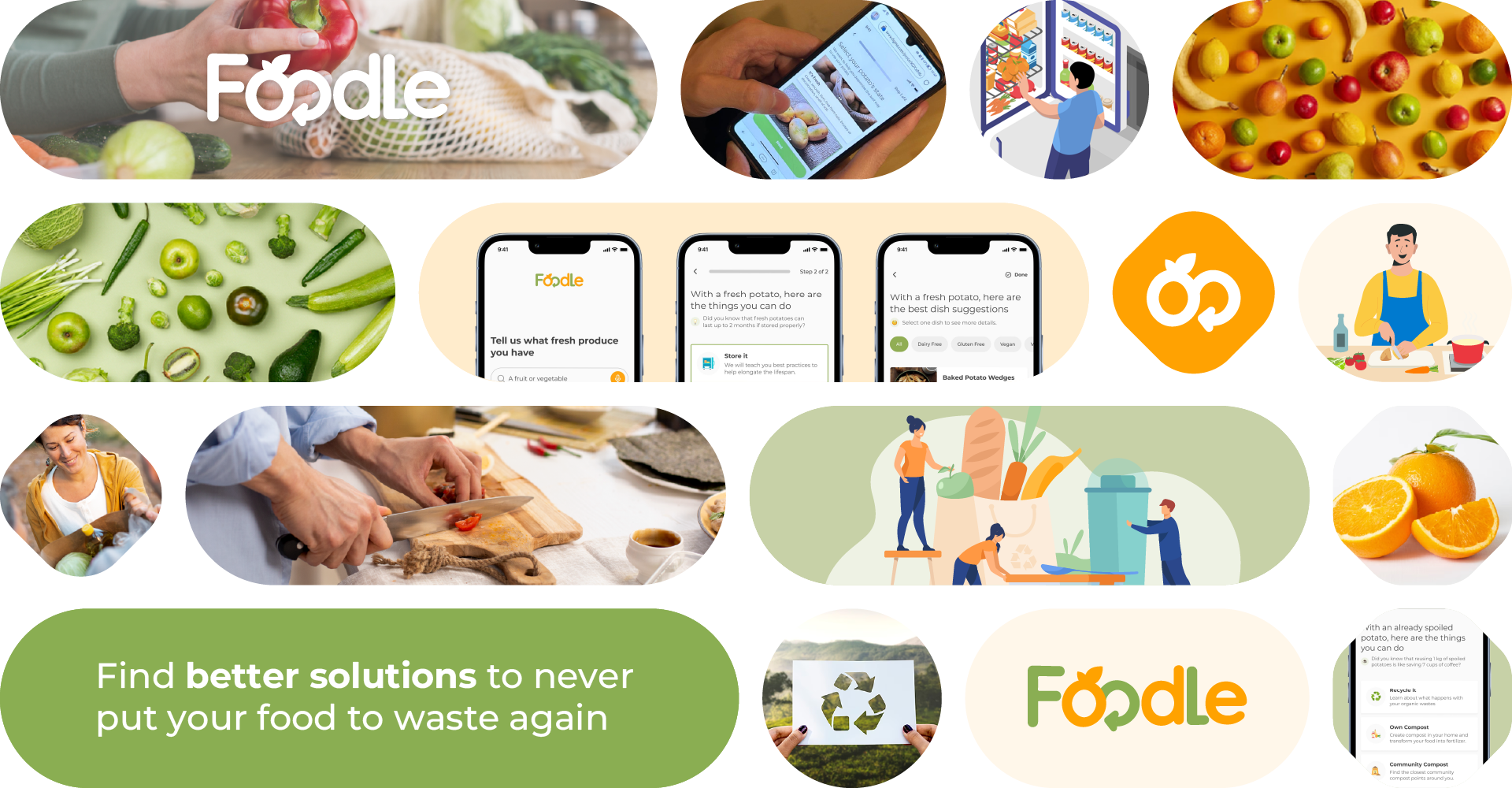
DESIGN PROCESS
This project was a true team effort—together with Lauria Kwan, Malena Guevgeozián, and Anthony Oparah, we followed a user-centered, insight-driven approach that turned abstract goals into tangible results.
1. Understand
Desk research, surveys and interviews revealed everyday issues like lack of time, impulse buying, and food “blind spots” in the fridge.
2. Define
We mapped user needs around quick access, emotional ease, and minimal decision fatigue. A clear opportunity emerged: simplify the mental load of food decisions.
3. Ideate
After exploring several directions, we shaped the MVP around a decision tree that helps users act based on freshness. This format was familiar, fun, and actionable—exactly what our users needed.
4. Iterate
We ran guerrilla and formal tests across user types. Each iteration sharpened the interface, refined copy, and confirmed that the experience worked—without needing a tutorial.
FINAL DESIGN
The final product is a lightweight, engaging mobile app with a strong core experience. Every touchpoint—from icons to transitions—was intentionally crafted to make food decisions fast and frictionless. Our documentation, UI kit, and dev handoff package ensured the concept was ready to move beyond the prototype stage.
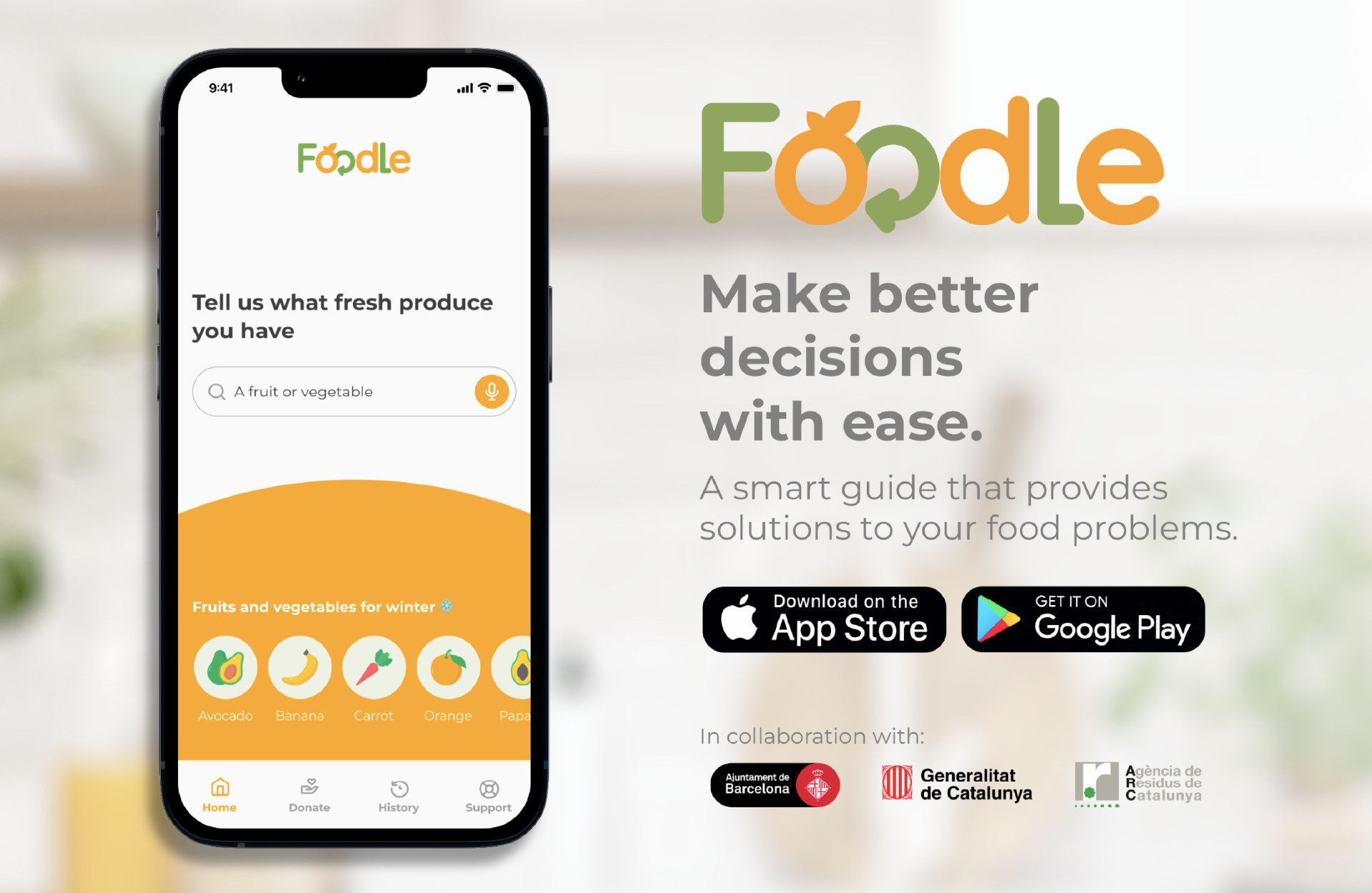
LEARNINGS
Not falling in love with the first ideas
At first, we focused on raising awareness about food waste. But testing showed users didn’t want education—they wanted immediate, usable solutions. Pivoting to a decision-tree flow unlocked a more useful and engaging experience.
Miguel, Testing participant: Foodle feels like a game. I get the info I need fast, and it doesn’t overload me—which is exactly what I need after a busy day.
Simplicity is powerful
We were tempted to add features like recipe builders or shopping lists. But testing reminded us: the simpler, the better. Prioritizing the MVP helped us stay focused on solving the core problem.
Enrique, UX/UI professor You really considered the end user’s mindset. Simplicity is the strength of this design—it offers just what’s needed, no more, no less.
Better questions, better insights
In hindsight, I would dive deeper into behavioral patterns and consult experts in food sustainability. Understanding micro-decisions around waste could unlock even smarter solutions next time.
Gaby, Sustainability Researcher Your design tackled the surface pain points really well. With a bit more behavioral context, Foodle could go even further in shaping long-term habits.
Want to see more?
